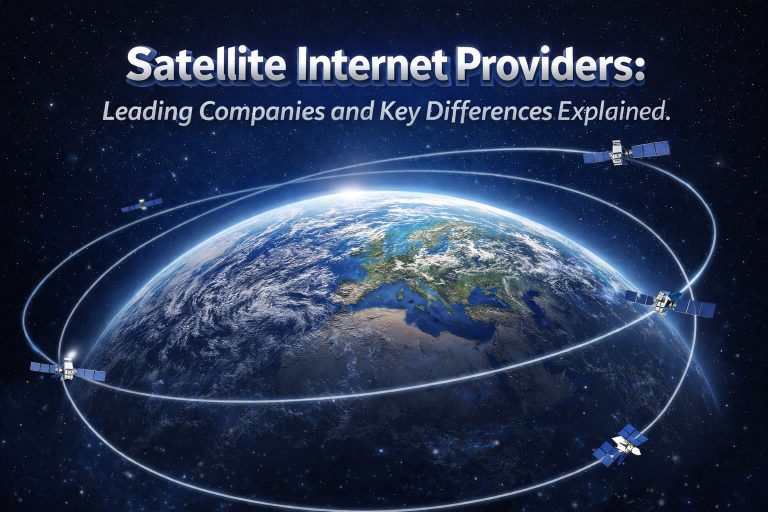
Quantum computing is an emerging technology that harnesses the strange properties of quantum mechanics to process information in ways traditional computers cannot. As this field continues to develop, it holds the promise to revolutionize various industries and change the way we solve complex problems. Here, we explore key trends and predictions for the future of quantum computing.
1. Better Quantum Hardware
Recent advancements in quantum hardware are making quantum computers more capable. Major companies like IBM, Google, and Rigetti are leading the way by developing new technologies to:
- Increase Qubit Count: Qubits are the basic units of quantum information. More qubits mean more processing power. Future quantum computers are expected to have thousands of qubits, enabling them to tackle much more complex problems.
- Improve Stability: One of the challenges in quantum computing is maintaining the stability of qubits. Researchers are working on better materials and techniques to keep qubits stable for longer periods, reducing errors in calculations.
- Error Correction Techniques: New methods for error correction will be crucial. As quantum computers perform calculations, they can make mistakes due to noise and interference. Improved error-correcting codes will help ensure that results are accurate.
- Hybrid Quantum-Classical Systems: The integration of quantum processors with classical systems will allow for more practical applications. These hybrid systems can leverage the strengths of both types of computing to solve real-world problems more efficiently.
2. New Quantum Software and Algorithms
As quantum hardware improves, so will the software that runs on it. We can expect significant developments in:
- Innovative Algorithms: New algorithms designed specifically for quantum computers will unlock unique applications. For example, quantum computers could efficiently solve problems related to logistics, finance, and even artificial intelligence.
- User-Friendly Development Tools: To encourage more developers to explore quantum computing, we’ll see the emergence of easier programming languages and frameworks. This will broaden the pool of talent working in the field and accelerate innovation.
- Collaboration with Traditional Computing: Quantum algorithms will increasingly be used alongside classical algorithms. This hybrid approach will help companies gradually integrate quantum solutions into their existing processes.

3. Applications in Different Industries
Quantum computing has the potential to transform numerous fields. Here are some industries that could benefit significantly:
- Healthcare: Quantum computing could revolutionize drug discovery. By simulating molecular interactions at a quantum level, researchers can identify potential new drugs much faster than traditional methods.
- Finance: In finance, quantum algorithms could lead to improved risk analysis and optimization of investment portfolios. This means financial firms could make better decisions based on complex data sets.
- Logistics: Companies in logistics can use quantum computing to solve complex routing and scheduling problems. This could lead to more efficient supply chains, reducing costs and delivery times.
- Material Science: Quantum computers can simulate the properties of new materials, leading to breakthroughs in everything from superconductors to renewable energy technologies.
4. The Quest for Quantum Supremacy
“Quantum supremacy” refers to the point at which quantum computers can solve problems that classical computers cannot, even the most powerful supercomputers. As competition grows among tech companies, we can expect:
- Major Breakthroughs: Companies will continue to announce significant achievements as they push the boundaries of what quantum computers can do. These milestones will inspire further research and investment.
- Collaborative Efforts: Partnerships between technology companies, universities, and research institutions will become more common. Collaborative research initiatives will accelerate innovation and help address the challenges facing the field.
- Open-Source Quantum Software: The rise of open-source platforms for quantum computing will encourage sharing knowledge and resources, fostering a community of developers and researchers.
5. Ethical and Security Issues
As quantum computing advances, it is essential to address potential ethical and security concerns:
- Cryptography: Quantum computers could break current encryption methods that secure our online communications and financial transactions. Developing new, quantum-resistant encryption algorithms will be crucial to maintaining security in a quantum future.
- Responsible Use: Ensuring that quantum technology is used ethically will be vital. Policymakers and researchers need to establish guidelines to prevent misuse, such as using quantum computing for malicious activities.
- Access and Equity: As with any new technology, there’s a risk of creating inequality. It’s important to ensure that access to quantum computing resources is equitable, allowing diverse groups to participate in this technological revolution.
Conclusion
The future of quantum computing is exciting and full of possibilities. As we make advancements in hardware, software, and applications, we will see significant changes across various industries. By fostering collaboration and addressing ethical concerns, we can harness the power of quantum computing to drive innovation and improve lives globally. The journey ahead promises to be fascinating, with the potential to reshape our understanding of technology and its impact on society. As we stand on the brink of this technological revolution, the possibilities are limitless.






